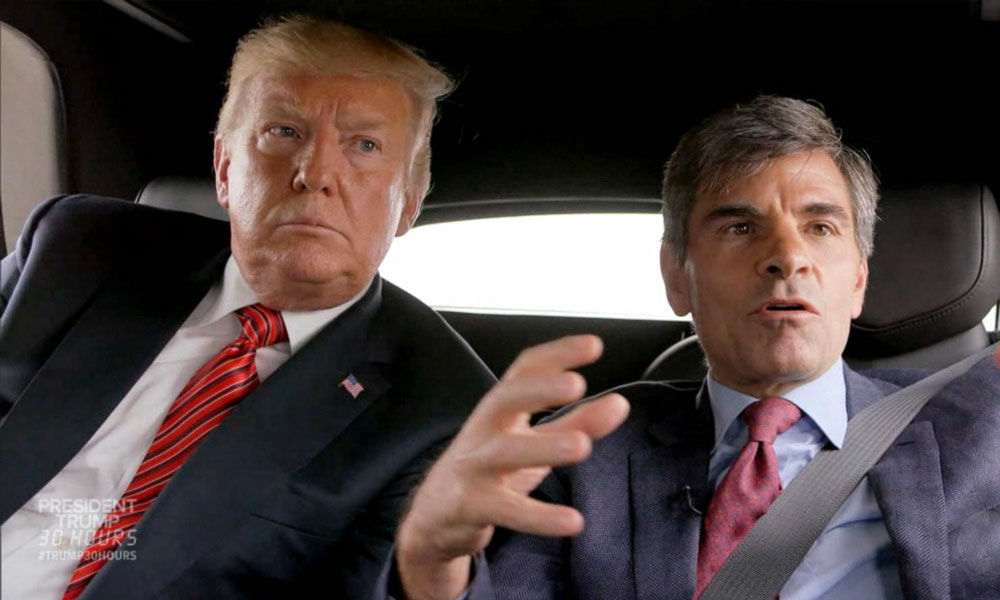US companies' message to Trump: Don't expand China tariffs

What happens if President Donald Trump carries out his threat to impose tariffs on the remaining USD 300 billion in Chinese goods that he hasn't already hit with 25 per cent import taxes?
Washington: What happens if President Donald Trump carries out his threat to impose tariffs on the remaining USD 300 billion in Chinese goods that he hasn't already hit with 25 per cent import taxes?
A New Hampshire fireworks company says it would have to raise prices, likely lose business and force some small towns to cancel their Fourth of July fireworks displays. A Minnesota motorcycle maker warns that it would lose business to foreign rivals that don't have to pay taxes on Chinese parts. A Los Angeles designer and distributor of houseware goods says it would have to extend a hiring freeze and delay plans to expand into a larger warehouse.
The administration, in the midst of the trade war it began with Beijing, had asked for comments on its plan to extend 25 per cent tariffs to everything China ships to the United States. It's getting an earful. Hundreds of businesses, trade groups and individuals have written to complain that the additional import taxes would drive up prices for consumers, squeeze profits and leave US companies at a competitive disadvantage to foreign rivals that aren't subject to higher taxes on the vital components they buy from China. They're pleading with the administration to rethink the tariffs — or at least spare the particular imports they and their customers rely on. Some will appear in person to air their grievances in seven days of hearings in Washington that begin Monday.
A common theme in their pleas is that American businesses — not China, as Trump often asserts — must pay the import taxes the president is imposing on Chinese goods. And in the end, many of these companies will pass their higher costs on to their customers. Trump has already imposed 25 per cent tariffs on USD 250 billion in Chinese imports. The goal is to pressure Beijing to stop stealing American technology, forcing US businesses to hand over trade secrets and unfairly subsidizing Chinese tech companies. Eleven rounds of negotiations have failed to resolve the dispute over China's aggressive drive to surpass America's technological dominance.
Businesses and investors say they hope the negotiations will gain momentum if Trump and President Xi Jinping hold a face-to-face meeting at a Group of 20 summit in Osaka, Japan in two weeks. "Most businesses are almost praying for a solution," said Patrik Berglund, who tracks global trade as the CEO of Xeneta, an Oslo, Norway ,firm that provides data on the shipping industry. "These things will have enormous consequences. We're so connected in this global world." Trump's earlier tariffs largely spared American consumers by focusing on industrial goods that don't show up directly in the mall or big-box stores. But the new round will inflict financial pain on ordinary households because it will affect many consumer goods, from cellphones and computers to shoes and silk scarves.
"We're talking about things that you and I buy and buy in a store, and that's going to be felt directly by consumers," said Neil Bradley, chief policy officer at the US Chamber of Commerce. The companies that serve the retail market, he said, tend to have "much, much less margin to absorb those increased tariff costs." A report commissioned by the National Retail Federation found that American consumers would pay an additional USD 4.4 billion a year for clothing, USD 2.5 billion more for shoes and USD 1.6 billion more for household appliances. More broadly, economists say the tariffs could weaken a US economy that appears to be on shakier footing. Mark Zandi, chief economist at Moody's Analytics, said the higher import taxes would leave the United States with 900,000 fewer jobs than it would have had otherwise.
"The US economy will be flirting with recession later this year and early next," Zandi said. Jeffrey Pratt, leader of the supply chain practice at the accounting and consulting firm BDO, called the looming tariffs "a bit of gamechanger" for his clients. Many can't afford to absorb the taxes themselves and would pass along the higher costs to their customers. Atlas PyroVision Entertainment in Jaffrey, New Hampshire, relies on China for 90% of the fireworks it sells. "Simply imposing a 25 per cent tariff will ultimately cause significant harm to our family business," CEO Stephen Pelkey said in a filing with the US Trade Representative.
"We would be forced to pass along the increase directly to our customers." Noting that community nonprofits often use the fireworks for Independence Day celebrations, Pelkey wrote: "In most cases, a 25% hike in price will force their skies to go dark on the 4th of July." Bracing for the new tariffs, Yedi Houseware, a Los Angeles family business, has postponed plans to hire and move into a bigger warehouse. Bobby Djavaheri, a company executive, echoed a common complaint: The administration is taxing products — in his case, things like air fryers — that aren't made by American companies. They must be imported. So no US producer benefits from the tariffs; US importers just get socked with a tax. "It's really dumbfounding," he said.
Indian Motorcycle Co. in Medina, Minnesota, complained that its foreign competitors won't have to pay a tax on Chinese parts, allowing them to "import the finished motorcycle into the United States — without increased costs." Excluding motorcycle parts from the tariffs, a company lawyer, Paul Vitrano, wrote, would "avoid the unintended consequence of providing foreign-based motorcycle manufacturers with a competitive advantage."










